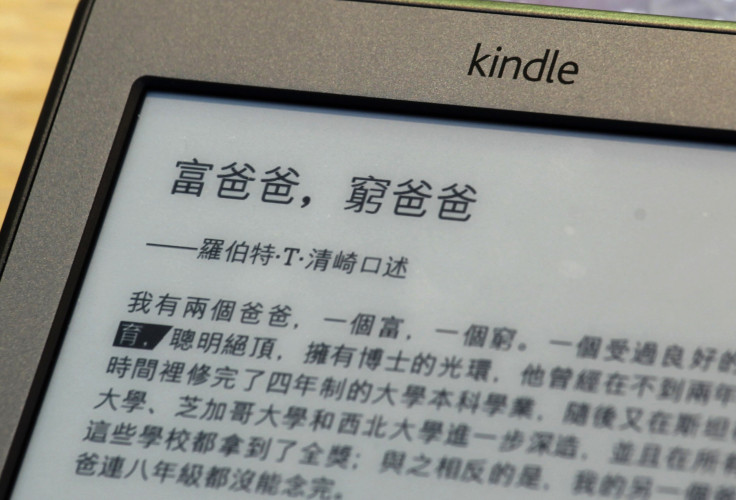Amazon Launching Kindle Paperwhite In China: Can The E-Reader Survive Content Piracy?

Amazon has launched its Kindle Paperwhite in China, but since China already has quite a few domestic e-readers, the foreign Kindle may have a challenge making itself competitive in the marketplace.
Compared to its Chinese competitors, Kindle, which was launched in China on Monday, has advantages. Hanvon Technologies was the first company to launch an e-reader in the Chinese market and caused a sensation at first. Eventually however, due to content deficiency, Hanvon’s e-reader has all but disappeared from the market.
In 2011, Cloudary, the largest original content publisher, launched its own e-reader, Bambook. Despite having no shortage of content, Kindles on Taobao (China’s eBay) far outsold Bambooks. Even dangdang.com, the Chinese equivalent of Amazon, with its 50 percent market share in online book retailing, has not made significant headway in e-books and e-readers.
Of course, Amazon’s Kindle will inevitably encounter a series of problems specific to the Chinese market. Part of Amazon’s e-reader success is due to the American publishing model, which always prints hardcovers first, then, months later, a cheaper paperback. Amazon exploited the differences in publishing time and price. Kindle is essentially a cheap, electronic paperback that is published alongside the hardcover.
In China, however, the only difference in time and price is that between the authorized version and a number of pirated versions. This will drive down the prices of e-books, making the market unstable and unhealthy. E-books have always been hard to sell in China due to content piracy. Therefore, Amazon’s biggest problem in China won’t be that no one wants its Kindles. It’s whether any e-book platform in Chinese can survive.
Numerous other obstacles exist for Amazon’s Kindle venture in China. For example, Amazon is a service-oriented company. Usually when there are any complaints on a book it carries, all of that book will be off the shelf and sent back to the publishers for correction. In China, however, e-book sales account for less than 1 percent of publishing houses’ income, so corrections will cost far more than any potential income the book will generate.
Technically, the Kindle isn’t without flaws. While it uses little power and is easy on the eyes, its response time is slow, and its and many reviewers have found its touchscreen technology awkward to use.
These deficiencies, combined with the advent of e-books for cellphones, might mean that the Kindle’s journey to grab a piece of the Chinese e-reader market will be long and harrowing. Many technology experts are already predicting a difficult and outright failure.
© Copyright IBTimes 2024. All rights reserved.





















